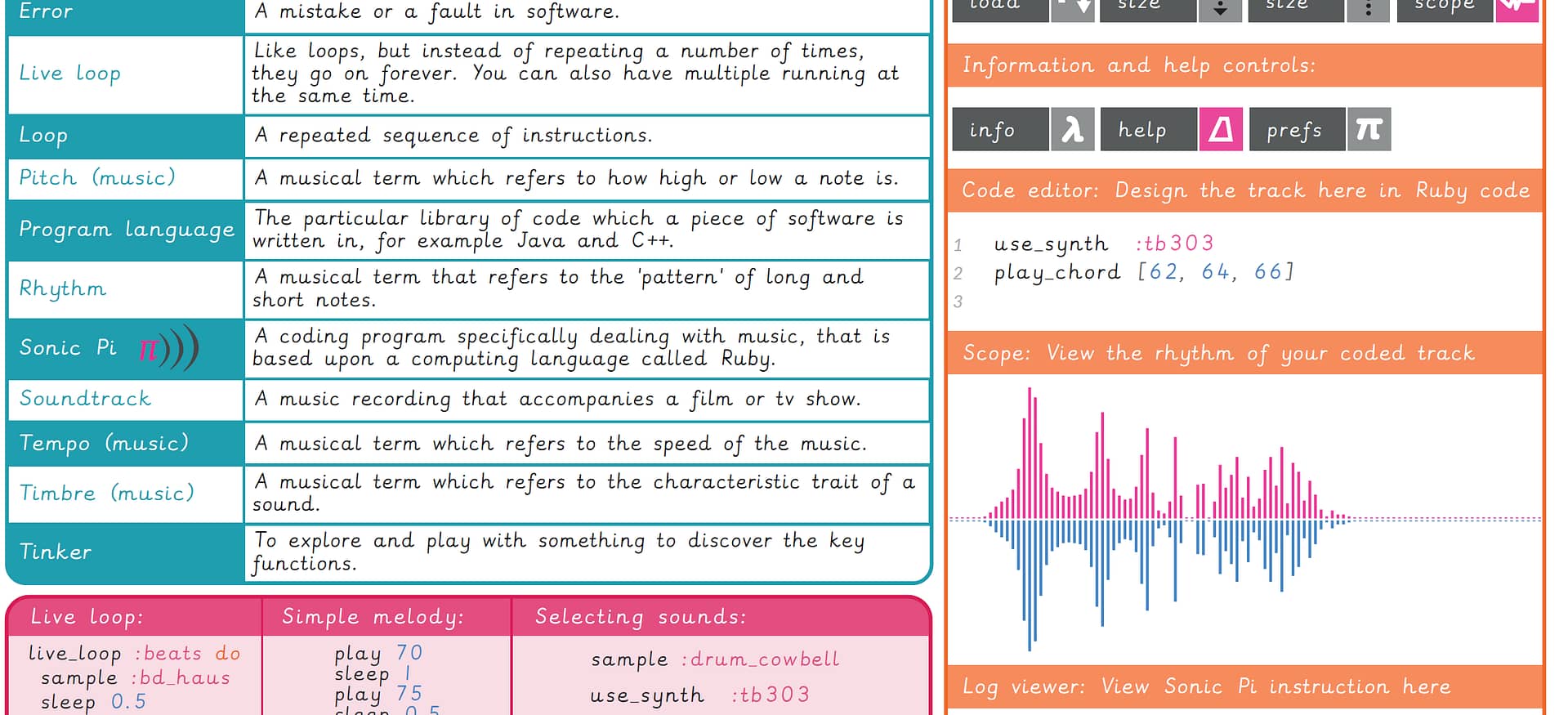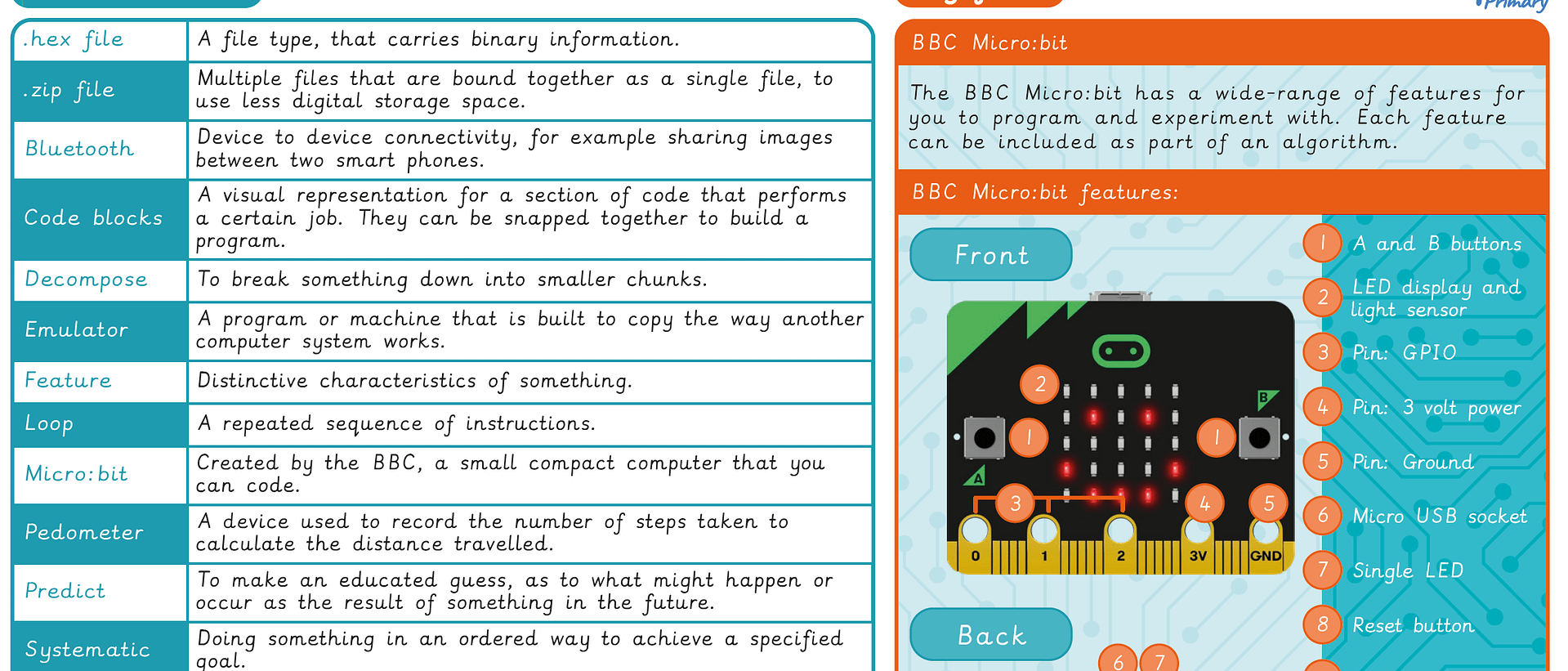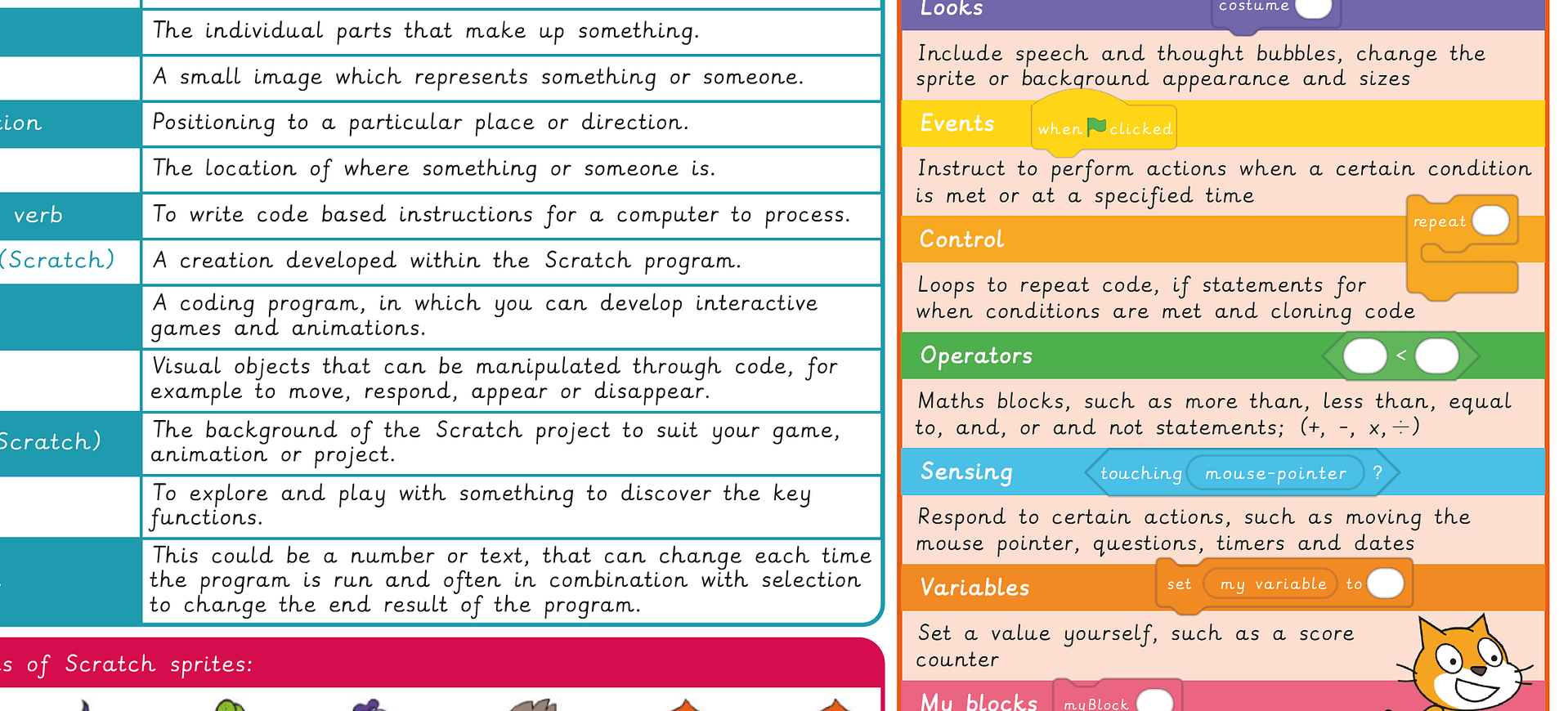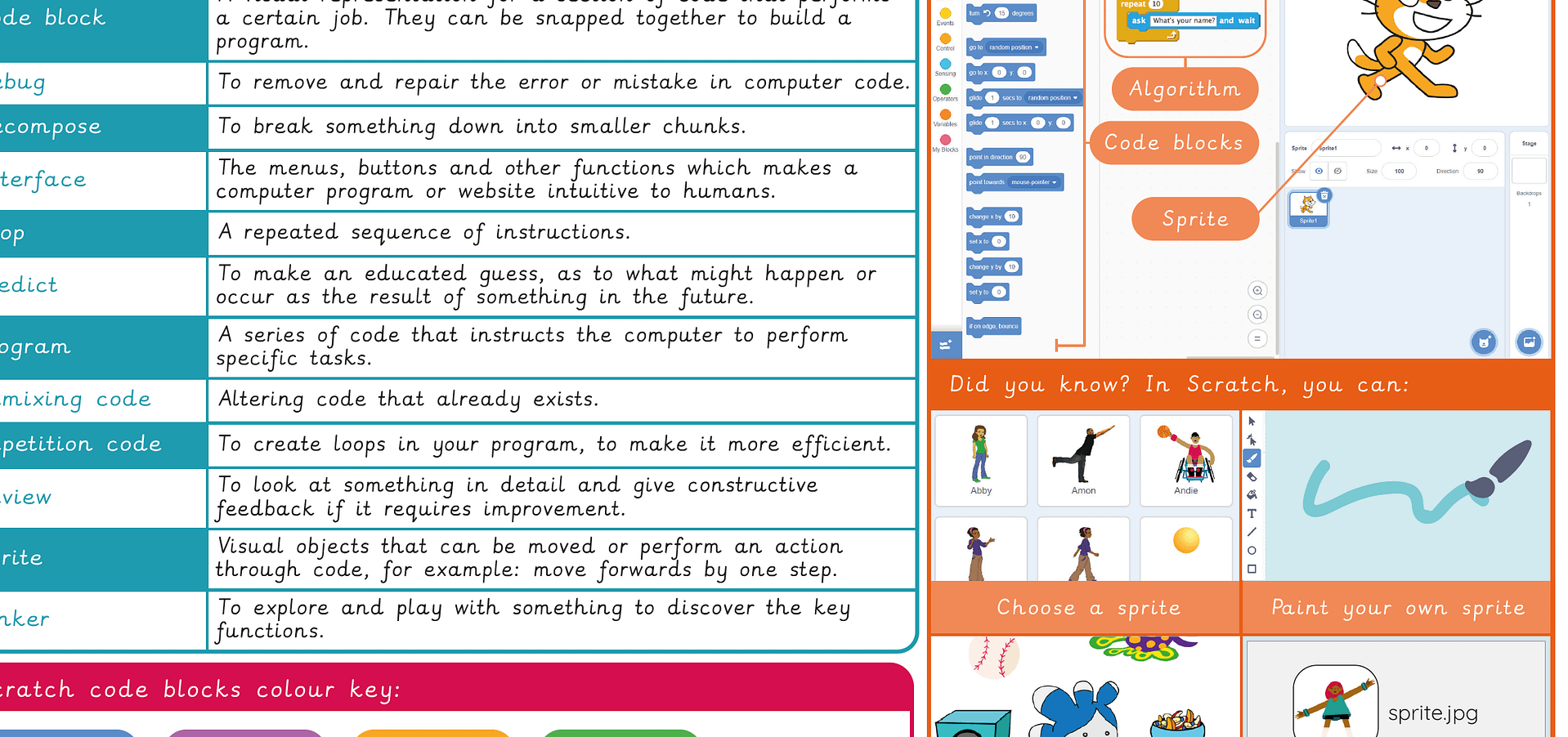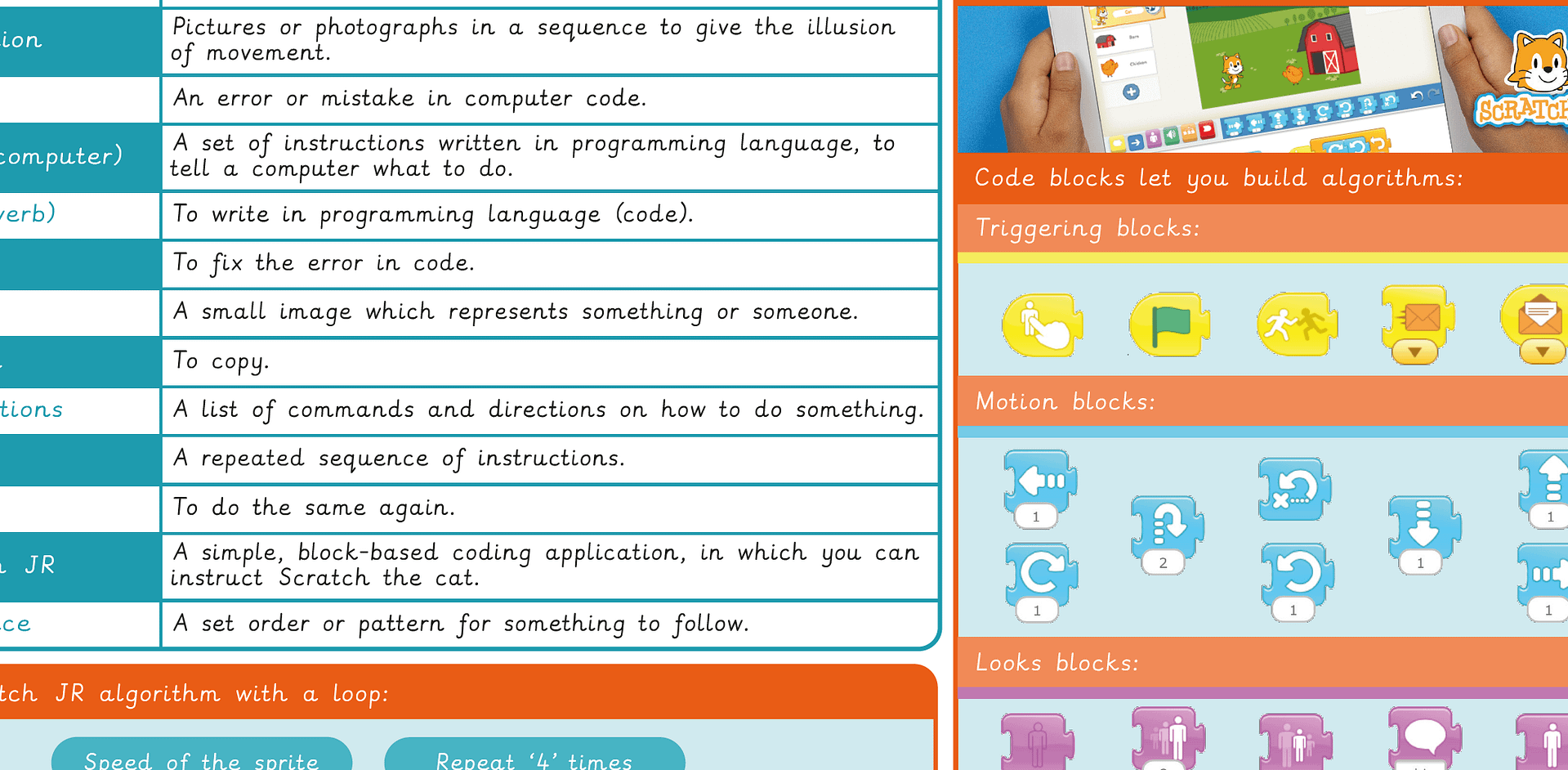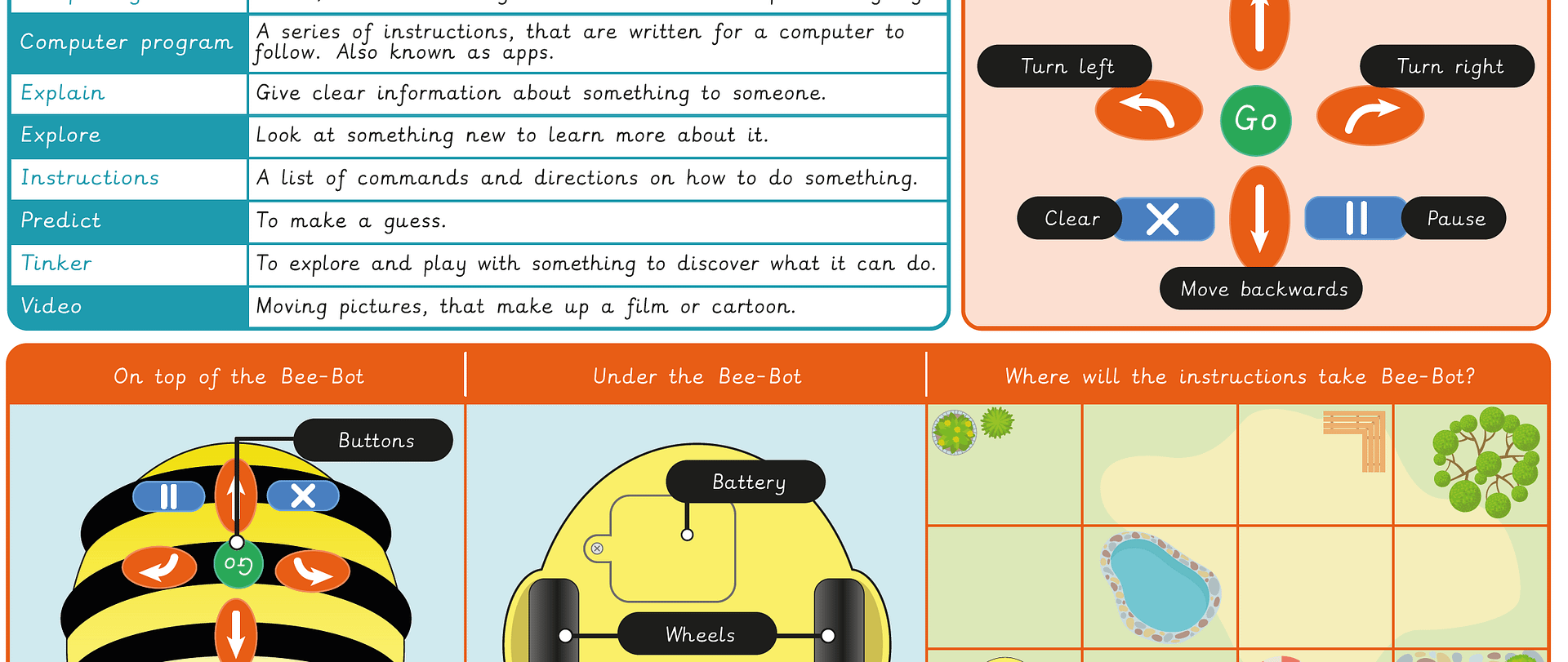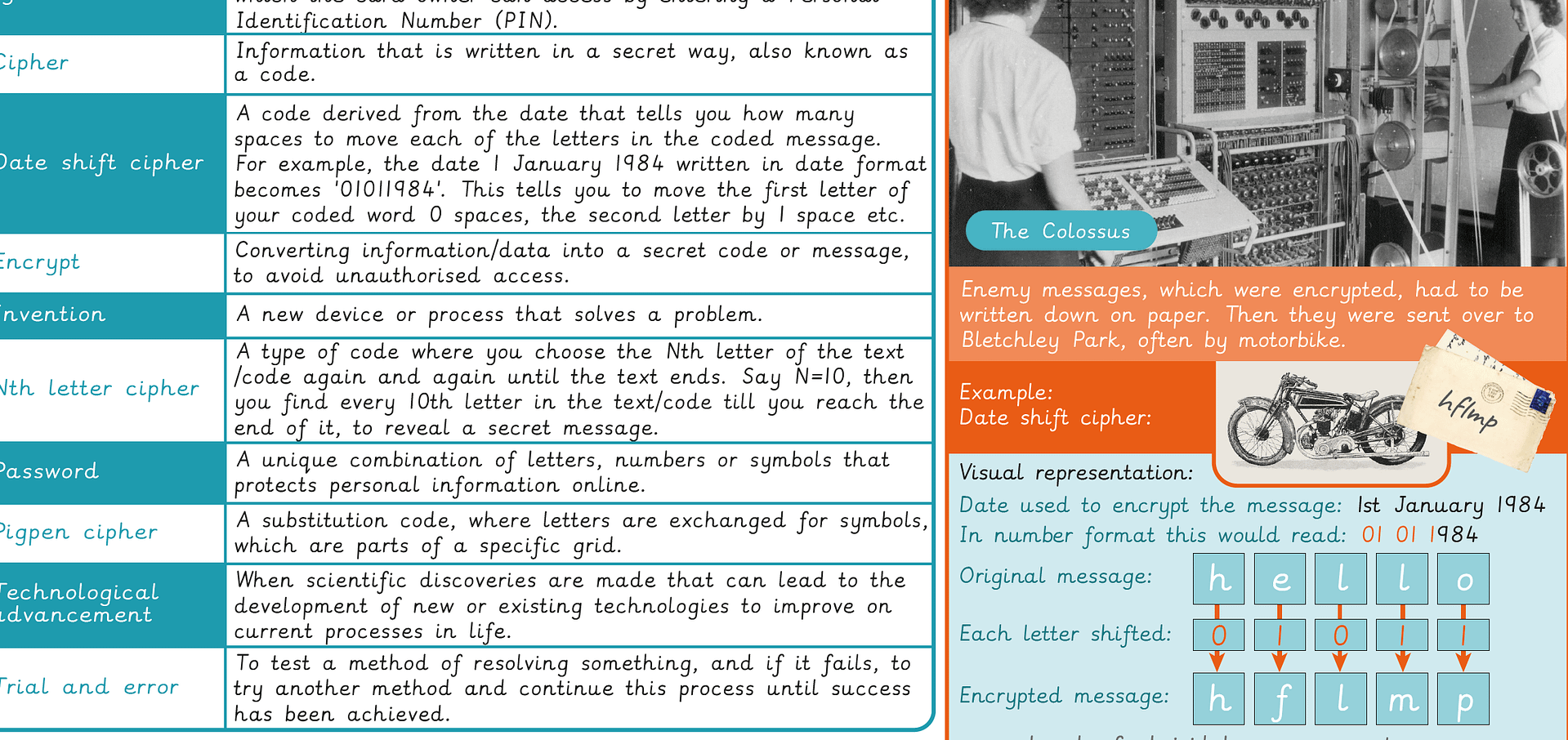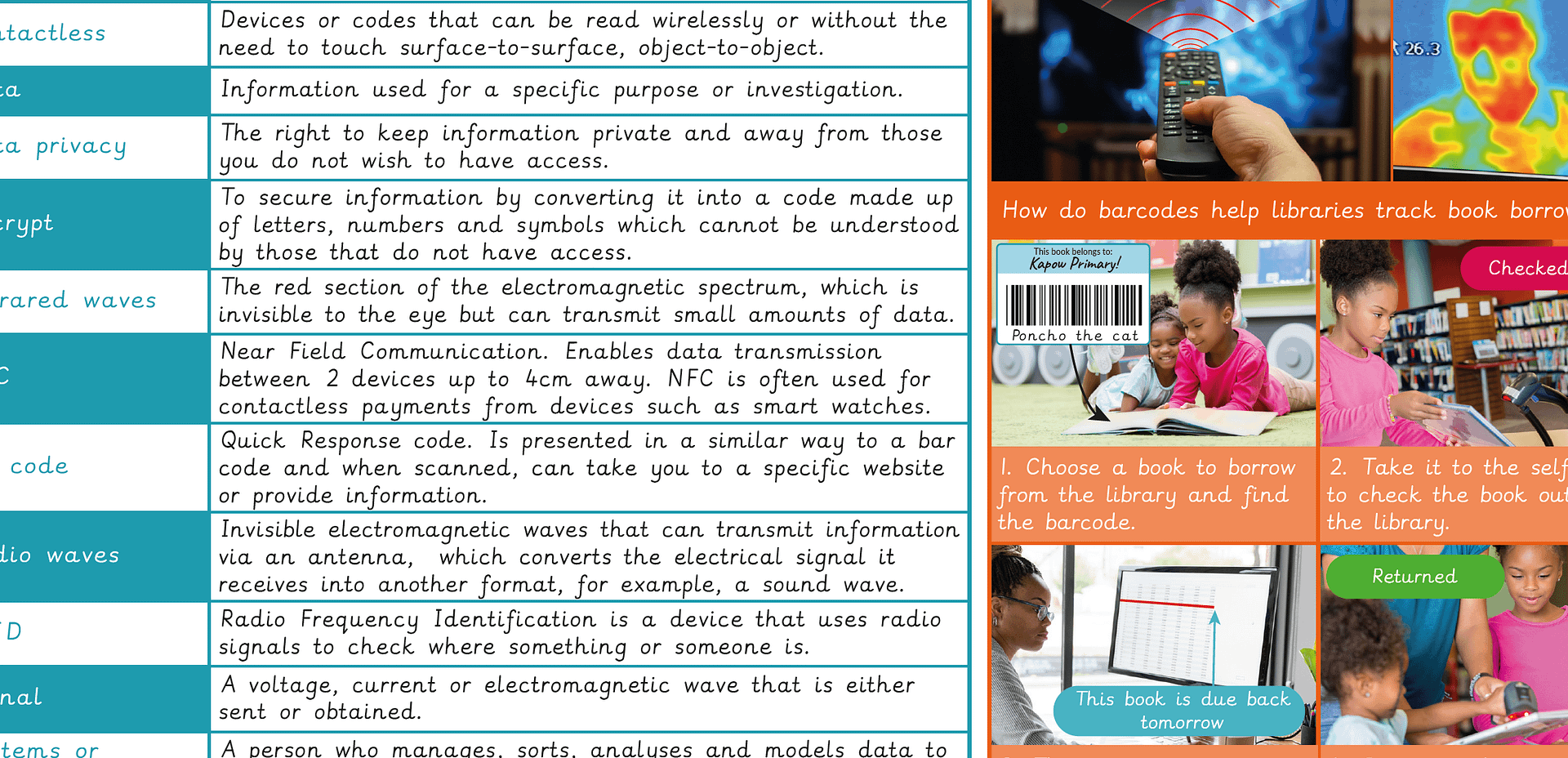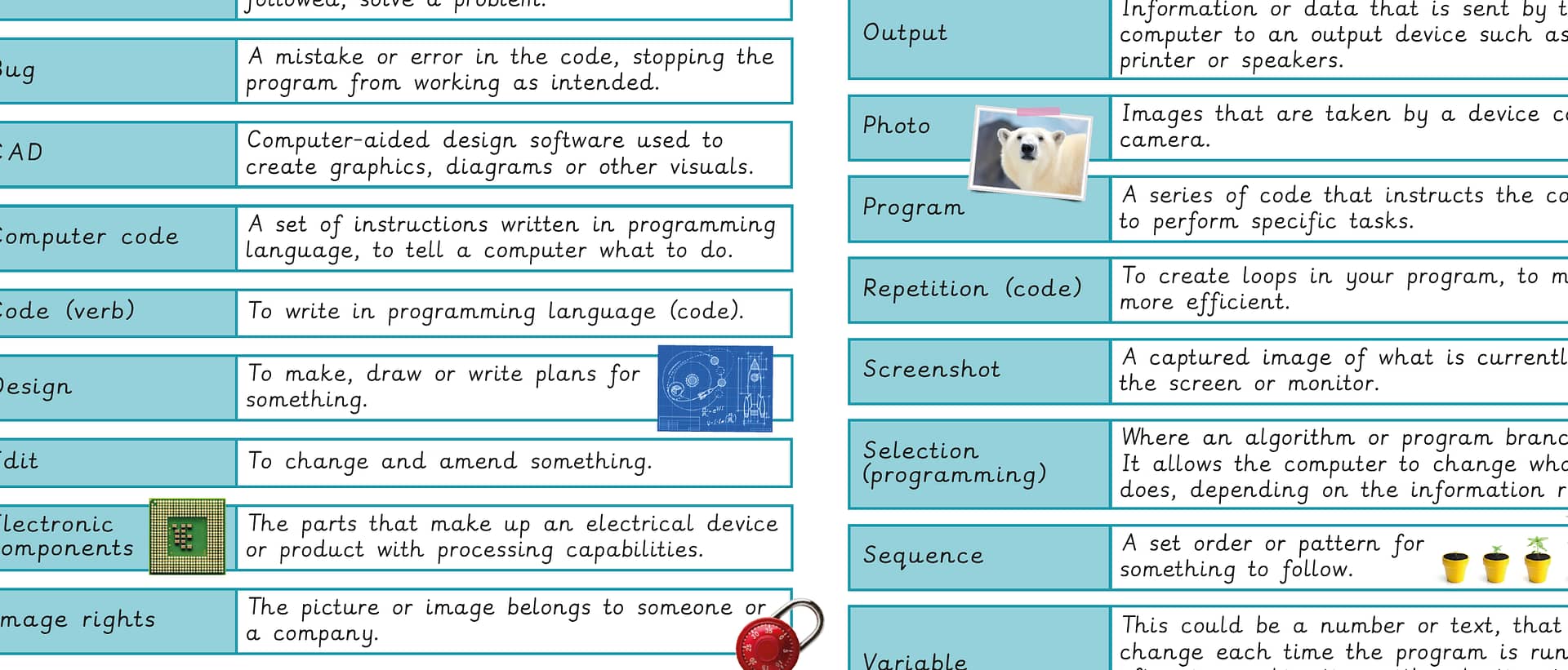A Knowledge organiser that captures the essential knowledge and skills learnt throughout the Archived unit: Programming 1: Music: Sonic Pi (laptop and desktop users).
This resource is designed to support the pupils as they explore how coding can be used to create music. It highlights key vocabulary and programming concepts, such as live loop, loop, debug, and tempo, while introducing the pupils to the basics of writing and editing code in Sonic Pi. The pupils will learn how to use commands to generate sound, structure musical patterns, and manipulate pitch, rhythm, and timbre in their own coded compositions. It is perfect for consolidating essential knowledge and fostering creativity by encouraging the pupils to experiment with programming and music. Through hands-on activities, they will develop problem-solving skills, learn how to debug errors in their code and gain confidence in using coding as a tool for artistic expression. The unit also introduces the pupils to the role of algorithms in music production, helping them understand how technology and the arts can work together.
Teaching resource: Knowledge organiser
Knowledge Organiser – Computing Y5: Micro:bit
Knowledge Organiser – Computing Y4: Further coding with Scratch
Knowledge Organiser – Computing Y3: Programming with Scratch
Knowledge Organiser – Computing Y2: Scratch JR
Knowledge organiser – Computing Y1: Bee-Bot
Knowledge organiser – Computing Y6: Bletchley Park
A Knowledge organiser that captures the essential knowledge and skills learnt throughout the unit Archived unit: Computing systems and networks: Bletchley Park.
This Computing knowledge organiser supports learners as they explore the significant role of Bletchley Park in the development of computing and its historical importance during World War II. It introduces key figures, vocabulary and the origins of codebreaking and computing technologies, helping learners to appreciate how past innovations have shaped modern systems. This resource is ideal for reinforcing core learning and building contextual understanding in Key Stage 2.

